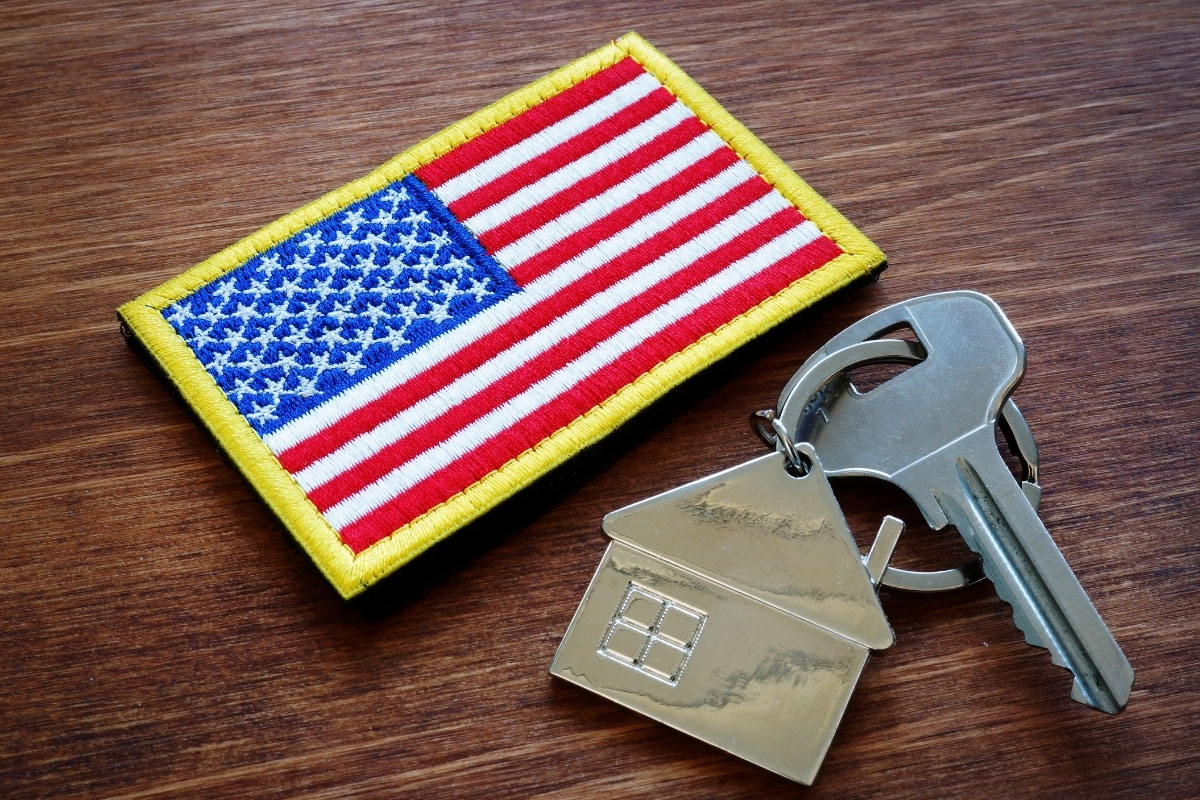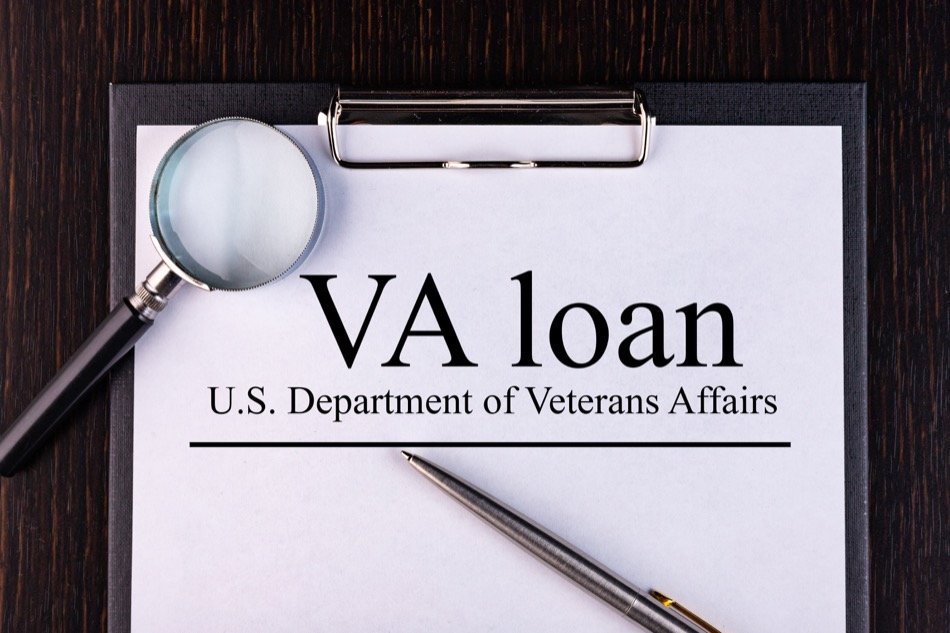VA Bonus Entitlement - Exploring Its Eligibility, Applications, And Appeals
Explore VA bonus entitlement for veterans, from disability compensation to CRSC. Learn how to apply, eligibility criteria, and navigate the process effectively.
Author:Dexter CookeReviewer:Camilo WoodJan 11, 20244.6K Shares104.1K Views

The term "VA bonus entitlement" typically refers to benefits provided by the Department of Veterans Affairs (VA) to eligible veterans as part of their compensation package.
These bonuses may take various forms and serve different purposes, but they generally aim to recognize and support veterans for their service. It's important to note that specific details may vary, and the information provided here is a general overview.
What Is VA Entitlement Bonus?
The term "VA bonus entitlement" refers to the additional financial benefits provided by the Department of Veterans Affairs (VA) to eligible veterans as a part of their compensation package. These bonuses are designed to recognize and support veterans for their service to the nation and may take various forms based on specific criteria.
For loans over $144,000, the VA bonus entitlement, also referred to as secondary and second-tier entitlement, comes into play. Qualified Veterans may also hold numerous VA loans concurrently due to bonus entitlement.
The amount that makes up the difference between your basic entitlement of $36,000 and a quarter of your loan amount over $144,000 is known as your bonus entitlement.
If, therefore, you were considering a $660,000 mortgage and decided against making a down payment, you would spend $165,000 of your entitlement, which is equal to 25% of $660,000. Your bonus entitlement in this scenario would be $129,000 ($165,000 – $36,000).
The difference between basic and bonus entitlement essentially means that you may still be eligible for another VA loan even if your COE indicates you have "$0" left in basic entitlement.
Your bonus entitlement will kick in, so you might still be eligible to use VA financing to purchase a second house in that scenario. If the loan amount is high enough, you may still be entitled for bonus entitlement even if your first mortgage was foreclosed upon.
You can feel secure in the knowledge that, should your loan amount necessitate it, you are not in charge of requesting your bonus entitlement from your lender separately, even if the many VA entitlement categories are still unclear to you.
It's likely that the terms "basic" and "bonus" entitlement won't be relevant until discussions regarding your loan take place between the VA and your lender. It is not required of the borrower to understand these ideas.
Though this second-tier entitlement isn't mentioned anywhere on your Certificate of Eligibility (COE), be assured that all VA-qualified borrowers are still entitled for bonus entitlement.
Types Of VA Bonuses
Service-Connected Disability Bonus
This type of bonus is granted to veterans with service-connected disabilities. The severity of the disability and its impact on the veteran's daily life determine the amount of compensation. The VA conducts a thorough assessment, assigning a disability rating that directly influences the compensation amount.
Combat-Related Special Compensation (CRSC)
CRSC is a special entitlement for veterans with combat-related disabilities. It aims to offset the reduction in military retirement pay due to the receipt of VA disability compensation. To qualify, veterans must demonstrate that their disabilities result directly from armed conflict.
Bonuses For Specific Service Periods Or Locations
Some veterans may be entitled to bonuses based on their service during specific periods or in hazardous duty locations. These bonuses recognize the challenges and risks associated with particular assignments, providing additional compensation to those who served in demanding conditions.
Retention Bonuses
The military may offer retention bonuses to encourage servicemembers to reenlist. The amounts can vary based on factors such as occupational specialty and the needs of the military at a given time. Retention bonuses play a crucial role in maintaining experienced personnel within the armed forces.
Bonuses For Critical Occupations
In certain situations, the military identifies critical occupations that require incentives to ensure an adequate number of qualified personnel. Bonuses are offered to individuals serving in these critical occupations, contributing to the overall effectiveness and readiness of the armed forces.
VA Bonus Eligibility Criteria
Eligibility for VA bonus entitlement is determined by various factors, and understanding these criteria is crucial for veterans seeking additional financial support. The following are key elements that often influence eligibility:
Nature And Duration Of Service
The nature and duration of a veteran's military service play a significant role in determining eligibility for VA bonus entitlement. Different types of bonuses may have specific requirements related to the length and character of service.
Service-Connected Disabilities
Many VA bonuses are tied to service-connected disabilities. Veterans with disabilities incurred or aggravated during their military service may be eligible for compensation. The severity of the disability, as determined by the VA's rating system, affects the amount of compensation.
Combat-Related Service
Combat-related service is a common eligibility criterion for specific VA bonuses, such as Combat-Related Special Compensation (CRSC). Veterans who can establish a direct connection between their disabilities and armed conflict may qualify for additional compensation.
Periods Or Locations Of Service
Some bonuses are linked to specific periods or locations of service, especially in hazardous duty areas. Veterans who served during particular campaigns or in areas with heightened risks may be entitled to bonuses recognizing the challenges associated with their service.
Occupational Specialties
Certain bonuses, such as retention bonuses, may be tied to specific occupational specialties. The military identifies critical occupations and offers incentives to retain experienced personnel in these roles.
Reenlistment And Retention Requirements
Veterans interested in bonuses related to reenlistment or retention must meet specific requirements outlined by the military. These requirements may include agreeing to serve for a specified period and meeting certain performance standards.
Dependents
In some cases, the presence of dependents can influence eligibility for certain VA bonuses. The needs of dependents are considered when calculating compensation amounts, particularly in the case of disability benefits.
Application Process For VA Bonus Entitlement
The application process for VA bonus entitlement involves several steps, and veterans should follow these procedures to access the benefits they are entitled to:
Gather Necessary Documentation
Before initiating the application process, veterans should gather all necessary documentation, including service records, medical records, and any other relevant information. This documentation will support the veteran's eligibility claims.
Determine The Appropriate Bonus
Veterans should identify the specific type of bonus they are eligible for and interested in applying for. Different bonuses may have distinct application procedures and requirements.
Visit The VA Or Military Service Office
Veterans can visit their local VA office or military service office to obtain information and guidance on the application process. Staff at these offices can assist veterans in understanding the specific requirements for the chosen bonus.
Complete The Application Form
Veterans will need to complete the relevant application form for the desired bonus. The form typically requires detailed information about the veteran's service, disabilities (if applicable), and other relevant details.
Submit The Application
Once the application form is complete, veterans must submit it to the appropriate office or agency. This may involve mailing the application, submitting it online, or delivering it in person to the designated location.
Undergo Medical Examinations (if Required)
For bonuses related to service-connected disabilities, veterans may be required to undergo medical examinations to assess the severity of their conditions. These examinations contribute to the determination of disability ratings.
Follow Up On The Application
Veterans should follow up on the status of their applications regularly. The processing time can vary, and staying informed about the progress of the application ensures timely resolution.
Address Appeals (if Necessary)
If the initial application is denied, veterans have the right to appeal the decision. The appeals process allows veterans to present additional evidence or arguments to support their case.
Update Information As Needed
Veterans should promptly update the VA or relevant authorities about any changes in personal circumstances, such as marriage, divorce, or the birth of a child. These changes can impact the amount of compensation received.
Stay Informed About Deadlines
Being aware of deadlines is crucial in the application process. Missing deadlines may result in delays or the loss of entitlements, so veterans should stay informed and submit applications in a timely manner.
Calculating Bonus Amounts
The calculation of VA bonus amounts is a crucial aspect of the entitlement process, and it varies based on the type of bonus a veteran is eligible for. Understanding how these amounts are determined provides veterans with insight into the financial support they can expect. Here are key factors influencing the calculation of bonus amounts:
Service-Connected Disability Compensation
For veterans eligible for disability compensation, the amount is determined by the severity of their service-connected disabilities. The VA assigns disability ratings, ranging from 0% to 100%, with higher ratings corresponding to more severe disabilities. Compensation increases as the disability rating rises.
Combat-Related Special Compensation (CRSC)
CRSC amounts are calculated to offset the reduction in military retirement pay due to the receipt of VA disability compensation. The CRSC rate is influenced by the percentage of the veteran's disability rating that is directly related to combat. It aims to provide additional support for veterans who incurred disabilities in combat.
Bonuses For Specific Service Periods Or Locations
Bonuses tied to specific service periods or hazardous duty locations may have predetermined amounts. The military recognizes the challenges associated with certain assignments and offers additional compensation to veterans who served during these periods or in these locations.
Retention Bonuses
Retention bonuses can vary based on factors such as occupational specialty and the needs of the military. The amount is often negotiated to incentivize experienced personnel to reenlist and continue serving in critical roles.
Dependent-Related Considerations
In cases where dependents are considered in the calculation, the number and needs of dependents influence the total compensation amount. Veterans with dependents may receive higher compensation to address the additional financial responsibilities associated with family care.
Updates And Changes In Circumstances
Compensation amounts may be subject to change based on updates to disability ratings or changes in personal circumstances. Veterans should promptly notify the VA of any alterations, ensuring that their compensation reflects the most current and accurate information.
Important Considerations
Several important considerations come into play as veterans navigate the VA bonus entitlement process. Being aware of these factors ensures a smoother experience and maximizes the effectiveness of the benefits provided:
- Veterans should be vigilant about deadlines for applying for various VA bonuses. Missing deadlines may result in delays or even the loss of entitlements. Staying informed about application timelines is crucial for timely submission.
- Personal circumstances, such as marriage, divorce, or the birth of a child, can impact the amount of VA compensation. Veterans should promptly notify the VA of any such changes to ensure that their benefits accurately reflect their current situation.
- Effective communication with the VA is essential throughout the application and entitlement process. Veterans should promptly respond to requests for information, provide necessary documentation, and seek clarification on any aspects of the process that may be unclear.
- Thorough documentation and record-keeping are critical. Veterans should retain copies of all relevant documents, including service records, medical evaluations, and communications with the VA. These records serve as valuable evidence in case of appeals or updates.
- Each type of VA bonus has specific eligibility criteria. Veterans should thoroughly understand these criteria to ensure they meet the requirements for the desired bonus. This understanding helps streamline the application process and reduces the risk of misunderstandings.
Appeals Process
The appeals process is a crucial aspect of the VA bonus entitlement system, providing veterans with a recourse mechanism if they disagree with a decision or if their initial application is denied. Understanding how the appeals process works empowers veterans to advocate for their entitlements effectively:
Reasons For Appeals
Veterans may file an appeal for various reasons, including disagreement with the assigned disability rating, denial of a particular bonus, or other decisions made by the VA. The appeals process allows veterans to present additional evidence or arguments to support their case.
Initiating An Appeal
Veterans initiate the appeals process by filing a Notice of Disagreement (NOD) with the VA. This document formally communicates the veteran's disagreement with a decision. The NOD must be submitted within one year of receiving the decision.
Options For Review
After filing an NOD, veterans can choose from different options for review, including a Decision Review Officer (DRO) review, a Supplemental Claim, or an appeal to the Board of Veterans' Appeals (BVA). Each option has specific procedures and timelines.
DRO Review
A DRO review involves having a Decision Review Officer reevaluate the claim. The veteran or their representative may provide additional evidence or arguments during this stage to support their case. The DRO aims to resolve issues without the need for a formal hearing.
Supplemental Claim
Veterans can submit new and relevant evidence as part of a Supplemental Claim. This option allows for a more comprehensive review of the case, considering any new information that may impact the decision.
Board Of Veterans' Appeals (BVA)
If dissatisfied with the results of the DRO review or Supplemental Claim, veterans can appeal to the BVA. This involves a formal hearing before a Veterans Law Judge who will review the case and make a decision based on the evidence presented.
Appeals Modernization Act (AMA)
The Appeals Modernization Act, implemented in 2019, introduced a new appeals system aimed at providing veterans with more choices and a faster resolution. Veterans should be aware of how the AMA may impact their specific case and choose the most appropriate path for their situation.
Legal Representation
Veterans have the option to seek legal representation during the appeals process. Attorneys or accredited representatives can assist in preparing and presenting a case, ensuring that all relevant information is considered.
Patience And Persistence
The appeals process can take time, and veterans should be patient and persistent. Regularly following up on the status of the appeal and providing any requested information promptly can help expedite the resolution.
Notification Of Decision
Once the appeals process is complete, the veteran receives notification of the decision. If the decision is in favor of the veteran, any retroactive benefits owed will be provided. If not satisfied with the outcome, further legal recourse may be explored.
VA Bonus Entitlement - FAQs
How Do I Apply For VA Bonus Entitlement?
To apply for VA bonus entitlement, veterans typically need to submit an application to the VA. The application process may involve providing documentation related to service, medical records, and other relevant information.
Who Is Eligible For VA Bonuses?
Eligibility for VA bonuses depends on factors such as the nature and duration of service, the presence of service-connected disabilities, and specific criteria for each type of bonus. Veterans should check with the VA for detailed eligibility requirements.
How Are VA Bonus Amounts Calculated?
VA bonus amounts are calculated based on specific criteria for each type of bonus. For example, disability compensation amounts depend on the severity of the disability, while CRSC is calculated to offset the reduction in military retirement pay due to receiving VA disability compensation.
Can Veterans Appeal VA Decisions Regarding Bonus Entitlement?
Yes, veterans have the right to appeal VA decisions regarding bonus entitlement. The appeals process allows veterans to present additional evidence or arguments to support their case.
Conclusion
VA bonus entitlement is a crucial component of the overall support provided to veterans. This bonus acknowledges the sacrifices and contributions of veterans and aim to provide financial assistance in recognition of their service-connected disabilities or other qualifying factors. Veterans seeking information about specific VA bonuses should consult with the VA or other relevant authorities to ensure they have accurate and up-to-date details tailored to their individual circumstances.

Dexter Cooke
Author
Dexter Cooke is an economist, marketing strategist, and orthopedic surgeon with over 20 years of experience crafting compelling narratives that resonate worldwide.
He holds a Journalism degree from Columbia University, an Economics background from Yale University, and a medical degree with a postdoctoral fellowship in orthopedic medicine from the Medical University of South Carolina.
Dexter’s insights into media, economics, and marketing shine through his prolific contributions to respected publications and advisory roles for influential organizations.
As an orthopedic surgeon specializing in minimally invasive knee replacement surgery and laparoscopic procedures, Dexter prioritizes patient care above all.
Outside his professional pursuits, Dexter enjoys collecting vintage watches, studying ancient civilizations, learning about astronomy, and participating in charity runs.

Camilo Wood
Reviewer
Camilo Wood has over two decades of experience as a writer and journalist, specializing in finance and economics. With a degree in Economics and a background in financial research and analysis, Camilo brings a wealth of knowledge and expertise to his writing.
Throughout his career, Camilo has contributed to numerous publications, covering a wide range of topics such as global economic trends, investment strategies, and market analysis. His articles are recognized for their insightful analysis and clear explanations, making complex financial concepts accessible to readers.
Camilo's experience includes working in roles related to financial reporting, analysis, and commentary, allowing him to provide readers with accurate and trustworthy information. His dedication to journalistic integrity and commitment to delivering high-quality content make him a trusted voice in the fields of finance and journalism.
Latest Articles
Popular Articles

